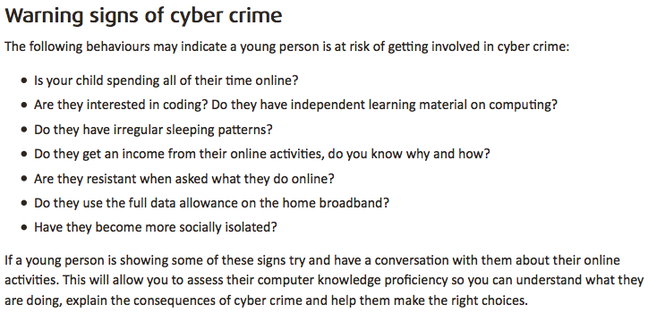This article is more than 1 year old
Is your child a hacker? Liverpudlian parents get warning signs checklist
Do they use 'the language of hacking', including referring to themselves as a 'hacker'?
Hot on the heels of Liverpool being awarded the European Capital of Culture for 2008 comes a charity programme, run by YouthFed, titled Hackers to Heroes.
The programme, which encourages youngsters to develop useful computer skills, is also informing parents of the signs they may encounter if their children are on the path to becoming cybercriminals.
A list of potential warning signs was published by the Liverpool Echo today.
The list was compiled by Vince Warrington, a self-described "Cyber Security Leader & Entrepreneur" who has "helped both the government and private companies keep their data safe", according to the Echo. He wrote on LinkedIn: "I've been described as an emerging Thought Leader in information security as I have a holistic approach to data protection."
That thinkfluence has now formed part of the Hackers for Heroes scheme, which is targeting children aged between 8 and 18 and informing them about how to behave properly when traversing the interwebz.
We reproduce it here for concerned parents in other parts of the country.
- They spend most of their free time alone with their computer
- They have few real friends, but talk extensively to online friends about computers
- Teachers say the child has a keen interest in computers, almost to the exclusion of all other subjects
- They're online so much it affects their sleeping habits
- They use the language of hacking, with terms such as "DdoS" (pronounced D-dos), Dossing, pwnd, Doxing, Bots, Botnets, Cracking, Hash (refers to a type of encryption rather than cannabis), Keylogger, Lulz, Phishing, Spoof or Spoofing. Members of the Anonymous Hacktivist group refer to their attacks as "Ops"
- They refer to themselves and their friends as hackers or script kiddies
- They have multiple social media profiles on one platform
- They have multiple email addresses
- They have an odd-sounding nickname (famous ones include MafiaBoy and CyberZeist)
- Their computer has a web browser called ToR (The Onion Router) which is used to access hacking forums on the dark web
- Monitoring tools you've put on the computer might suddenly stop working
- They can connect to the wifi of nearby houses (especially concerning if they have no legitimate reason to have the password)
- They claim to be making money from online computer games (many hackers get started by trying to break computer games in order to exploit flaws in the game. They will then sell these "cheats" online)
- They might know more than they should about parents and siblings, not being able to resist hacking your email or social media
- Your internet connection slows or goes off, as their hacker rivals try to take them down
- Some circumstantial evidence suggests children with autism and Asperger's could be more vulnerable to becoming hackers
Concerned parents will undoubtedly be grateful for this sensible advice, which complements that issued by the National Crime Agency before Christmas 2015.

While readers may be unconcerned that their children are doing illegal things online, Warrington told the Echo that "children as young as eight have gotten involved in hacking, and most often it starts with online gaming."
Everyone panic! ®
